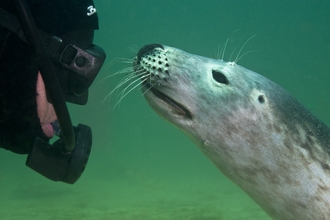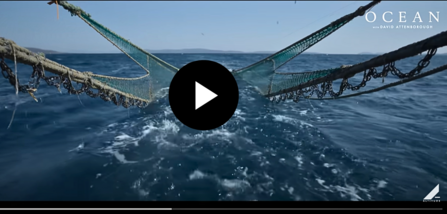Code Blue: Save Devon's Seas
Code Blue: Save Devon's Seas
Off the wild and wonderful coast of Devon lies a hidden world—an underwater treasure trove that belongs not just to us, but to future generations. From the mysterious Basking sharks and playful dolphins to delicate Seagrass meadows and rare Pink sea fans, our waters surrounding Devon are home to some of the UK’s most extraordinary marine species.
But this richness of marine life is facing growing challenges.
Pressures from overfishing, climate change, pollution, and increased coastal development are taking a toll on Devon’s delicate marine ecosystems. These threats are making it harder for the species that make our seas so special to thrive. Yet, with the right actions and support, there's still time to turn the tide and protect this remarkable environment for future generations.
Why Devon’s marine life matters
Devon’s seas are alive with wonder. From dolphins breaching off the coast to starfish clinging to Wembury’s rocky shores, our marine habitats—stretching from the reefs of South Devon to the sea caves of Lundy Island—are vital havens for marine life. They provide nurseries for fish, support local livelihoods, and play a key role in fighting climate change. Seagrass beds, for instance, store carbon and shelter cuttlefish, seahorses, and young fish. And if you're lucky, you might spot a solar powered sea slug or share a moment with a curious Tompot blenny—some of the most curious and inquisitive fish in our local waters.
All are symbols of the wild beauty and richness of Devon’s coast—and all need our protection.
Marine wildlife such as:
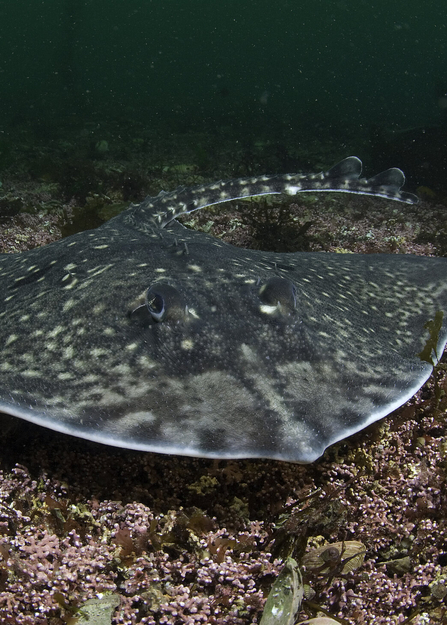
false - Copyright Paul Naylor
Sharks and Rays:
Rays are masters of disguise. With their sandy, speckled skin, they melt into the seabed, invisible to both predator and prey. But even their expert camouflage can’t save them from the devastation of bottom trawling. Heavy nets dragged across the ocean floor destroy everything in their path—ripping up fragile habitats and sweeping up rays, sharks and countless other creatures, only for many to be tossed back as bycatch, already dead or dying. This destruction is happening even in Marine Protected Areas, places meant to be safe havens.
That’s why we are campaigning for Marine Protected Areas to be safeguarded as safe havens for marine life and we are calling for bottom trawling to be banned in all protected waters. These incredible creatures—and the delicate ecosystems they live in—deserve real protection.
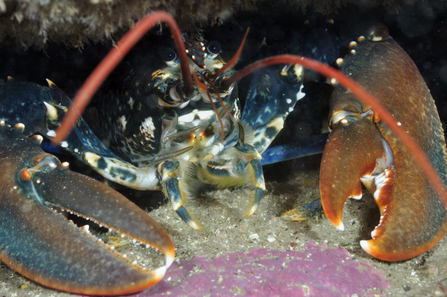
Photo, Linda Pitkin/2020VISION
Lobsters:
Lobsters have a superpower worthy of science fiction—they can regrow lost limbs! Lose a claw, a leg, or an antenna, and with time (and moulting), it can grow back! But not even this remarkable ability can protect them from today’s ocean threats. As one of the most valuable commercial species, lobsters face huge fishing pressures and unsustainable catch limits. On top of that, climate change is warming the ocean and making it more acidic — weakening their shells and damaging their ability to fight off disease. Lobsters also tend to stay in one area, which makes local habitat protection even more important.
With better monitoring and smarter fishing practices, we can give lobsters a fighting chance and ensure they’re part of our seas for generations to come.
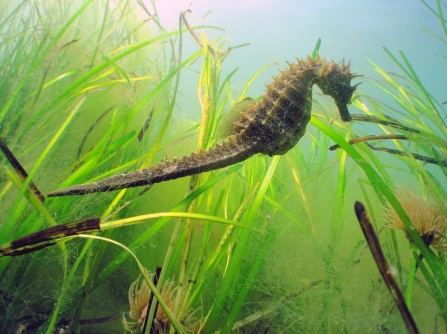
Seagrass:
Seagrass is one of the most important plants in the sea. It flowers and pollinates entirely underwater—and its long, green blades create underwater meadows that shelter seahorses, cuttlefish, pipefish, and other amazing marine life. These meadows also clean the water, stabilise and anchor the seabed, and support countless tiny creatures, from sea squirts to colourful anemones.
Seagrass meadows make a powerful ally in the fight against climate change, capturing and storing carbon in their soils at remarkable rates, and locking it away for centuries. In the English Channel and Western Approaches region (which includes Devon), seagrass bed sediments alone hold an estimated 23,600 tonnes of organic carbon!
But we’ve already lost at least half of UK’s seagrass, mostly due to declining water quality and physical disturbance such as coastal development, fishing and anchoring.
The good news? Seagrass can come back if we give it a chance. Devon still has patches of this magical habitat, but we need to protect and restore much more. The future of our seas (and us!) depends on it.
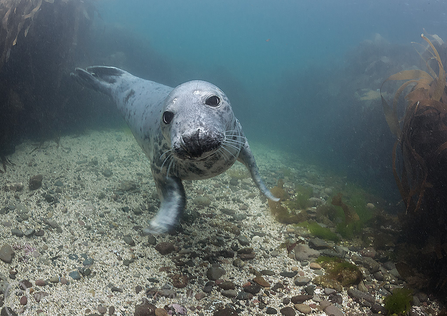
Mark Thomas
Seals:
Seals are sleek, curious, and incredibly agile—able to dive hundreds of metres and hold their breath for up to 20 minutes. They’re a familiar and beloved sight along Devon coasts. But despite their playful nature, seals are easily disturbed, especially when they’re resting or caring for their pups. Even a single close encounter with a boat or a paddleboard can cause them to flee in panic, sometimes leading to injury or death.
Another growing threat comes from ghost fishing gear—discarded nets, ropes, and other debris that linger in the sea for decades. These silent killers can entangle seals, causing severe injuries, starvation, and often death. The danger is invisible but deadly, and it continues to claim marine life long after the gear has been abandoned.
That’s why education is so important. We’re working with schools, communities, and local businesses to raise awareness and build a culture of care for our marine life. The more we understand and respect these animals, the better chance they have to thrive in our waters.
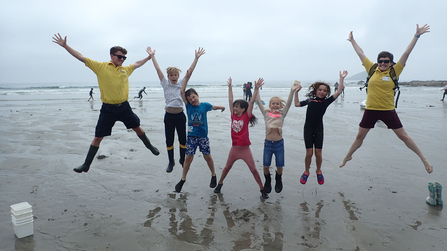
Wembury Beach Summer Holiday Club
How your donation will help
Devon’s waters are home to some of the most fascinating marine life in the UK—but they’re under pressure like never before. We’re stepping up efforts to protect and restore our seas, and you can help make a difference. Your donation powers essential work: restoring damaged habitats, protecting threatened species, and building strong evidence to push for real policy change. It also helps us educate and inspire people of all ages to take action for our seas. Together, we can create thriving havens for rays, lobsters, seagrass, seals and all marine wildlife - now and for the future. Let’s turn the tide, starting today.
Watch official clip from David Attenborough's film Ocean
The recent David Attenborough film 'Ocean' shows the devastating impact of bottom towed fishing. Shockingly this practice is taking place in marine protected areas in Devon seas. We are campaigning to have this activity that rips open our seabeds banned in marine protected areas.
Your support will help us to protect our sea beds by calling for a ban to all bottom towed fishing in marine protected areas.
Every £1 helps. Please give whatever you can
£35 will help us to campaign for better protection of our seas and marine life
Protecting our seas isn’t just up to scientists or policymakers—it starts with all of us. Through powerful public campaigns, we’ve already helped secure stronger protections for marine life. But with so much still at risk, greater protections are needed.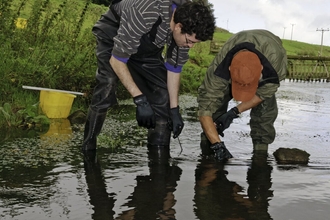
£150 will buy much needed research and monitoring equipment
Our teams carefully monitor the health of our seas, gathering vital evidence, helping us to understand what’s happening beneath the surface. This essential data helps guide our work to restore Devon's marine wildlife.